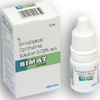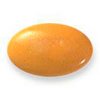INDICATIONS
Bimat is used for the treatment, control, prevention, & improvement of the following diseases, conditions and symptoms:
Glaucoma
Ocular hypertension
Lengthening eyelashes
INSTRUCTIONS
Elevated intraocular pressure
Ophthalmic: Instill 1 drop into affected eye(s) once daily in the evening; do not exceed once-daily dosing (may decrease IOP-lowering effect). If used with other topical ophthalmic agents, separate administration by at least 5 minutes.
Hypotrichosis of the eyelashes (Latisse): Ophthalmic, topical: Place one drop on applicator and apply evenly along the skin of the upper eyelid at base of eyelashes once daily at bedtime; repeat procedure for second eye (use a clean applicator).
Remove make-up and contact lenses prior to application; ensure face is clean. Apply with the sterile applicator provided only; do not use other brushes or applicators. Use a tissue or cloth to blot any excess solution on the outside of the upper eyelid margin; do not apply to lower eyelash line. Do not reuse applicators; use new applicator for second eye. Applying more than once nightly will not increase eyelash growth; eyelash growth is expected to return to baseline when therapy is discontinued. May reinsert contacts 15 minutes after application.
DOSAGE
Please consult a doctor regarding the dosage. Patients receiving medications to reduce intraocular pressure should consult their healthcare provider prior to using; may interfere with desired reduction of intraocular pressure.
STORAGE
Store between 2°C to 25°C (36°F to 77°F).







